In this special guest post by Caroline Maguire, ACCG, PCC, M.Ed. (author of Why Will No One Play with Me?) shares her advice for parents on how:
Your Child with ADHD Can Play Better and Live Better With Coaching: Learn How!
As a parent, you hear your child with ADHD revealing too much too soon to another child. You watch your teenager avoid reaching out to other teens. You notice your child seems immature and is laughing too long at jokes that are no longer funny. Or you notice your child can be irritable and appear rude. Children and teenagers with ADHD often struggle with self-awareness, self-regulation, and the ability to manage emotions that are crucial to social interactions.
You may be baffled, but you can help your child with ADHD change her social approach. With direct instruction and support, your child can work with you to develop better social skills. Why Will No One Play With Me? is your road map to learn how to talk to your child, coach her, and help her to develop these key life skills. After all, how often does self-advocating and communicating with teachers and peers come up in academics? Being able to fit in, collaborate with others, manage emotions, and make conversation are not just social skills—they are life skills.
Check Out My Top 5 Tips to Help Your Child Play Better and Improve Social Skills:
1. Open the Lines of Communication
Start by using more open-ended questions to open the conversation and make it more collaborative. Open-ended questions use the words who, what, when, where, how, and why. They ask, rather than tell. You can ask your child, What makes friendship hard? Who are you hanging out with these days? I notice you had a big reaction, what made you have that reaction? You need intel, and your child has it.
This communication style will allow for more collaborative discussions and help you to understand your child’s social dilemmas through his eyes and his own experience. Don’t assume you know why things are happening. When we assume, we miss so much. Any time your child balks at doing something you’ve suggested, ask, How come? Maybe it’s because he’s afraid of the unknown, or he remembers an experience that wasn’t pleasant.
2. Teach Your Child to Read Between the Lines—Games make learning more fun.
Play a game with your child. Make it a game to ask your child to interpret not what people say, but what they mean based on body language, facial expressions, and tone of voice. If need be, prompt your child and share with her some ways to guess what the person means, such as, What does the person’s body signals and tone of voice tell us they are trying to say? What do we know about this person? Ask her to pick out a sharp tone in one party guest, someone at the mall who is angry but does not say she is angry or someone who uses sarcasm and ask her how she knows this is the case.
3. Teach Your Child Learn to Read the Room
Help your child learn to clue into social cues by playing a game with your child. Prompt your child to pick out two people in her family to observe and then to report back what their facial expressions, body language, and tone of voice are when they are angry, frustrated, nervous, or frightened. When you and your child are at a party, at a mall, engaging with your family, ask her what she sees. Ask her, What does that person’s body language mean? What information can you gather just from the person’s tone of voice? In every environment, there are social guidelines, meaning typical behavior that the situation calls for—they are the unspoken rules.
4. Help Your Child Improve His Self-Regulation
Help your child learn what makes him too excited, lose control of his body, or become flooded with emotions. In the moment, guide your child to pinpoint what is going on inside his body and mind. These are signals that show him his current emotional state. Ask your child, Is there a particular topic that makes you experience a reaction? What happened before you got excited, or felt big emotions? Arm your child with calming strategies that you design with him collaboratively, so he is prepared in the heat of the moment to head off any signs of losing control.
5. Teach your child to engage in a “polite pretend”
The ability to fake interest or happiness and to be polite even when your child is hungry, tired, or bored is what I call a polite pretend. Begin by asking him some open-ended questions, How do you think your friend felt about your behavior? How do other people feel about how you treated them? What behavior does the situation call for? This will help your child think about his actions and why performing a polite pretend may be necessary rather than hurting other people’s feelings.
Bio
Caroline Maguire, ACCG, PCC, M.Ed. is a personal coach who works with children who struggle socially and the families who support them. She is a former coach for the Hallowell Center in Sudbury, MA. While with the Hallowell Center, Caroline was the primary coach for children and teenagers. Her groundbreaking book, Why Will No One Play With Me? teaches parents how to coach their children to develop and improve their social skills.
Follow her parenting advice and purchase the book at carolinemaguireauthor.com.
Learn about Coaching at the Hallowell Centers: NYC and Boston MetroWest
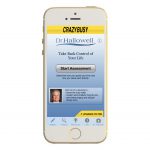
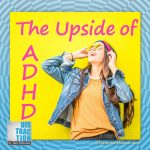
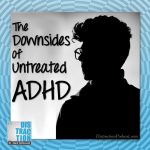
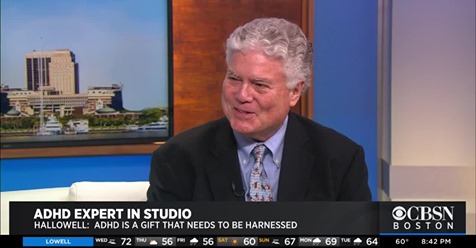
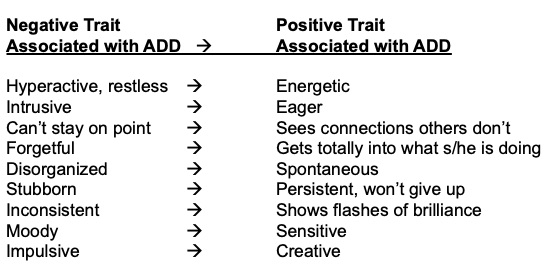
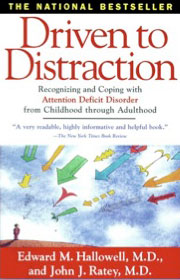 The month of October is ADHD Awareness Month. It also marks the 25th anniversary of the publication of Driven to Distraction.
The month of October is ADHD Awareness Month. It also marks the 25th anniversary of the publication of Driven to Distraction.





